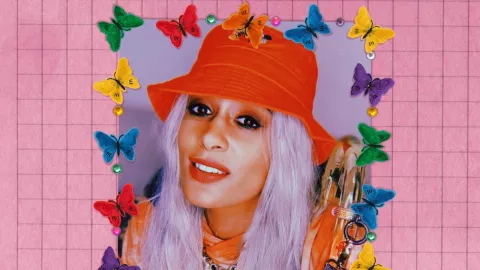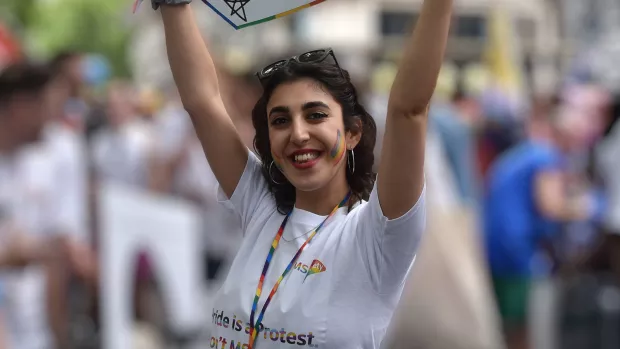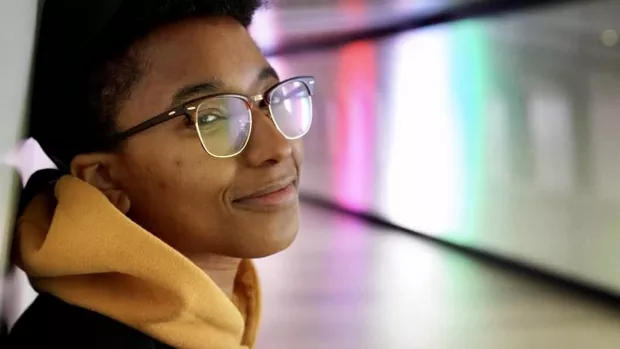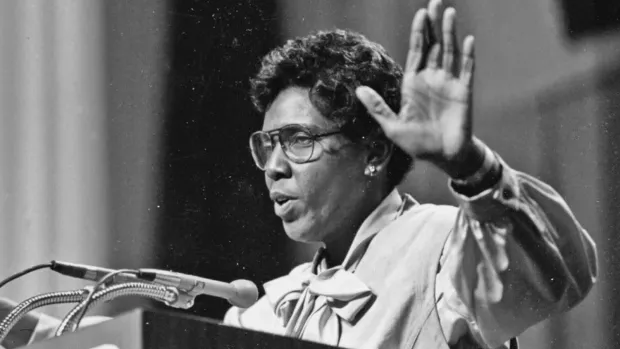
The importance of visibility for queer disabled people
Audre Lorde the iconic black, queer disabled writer once said: “It is not our differences that divide us. It is our inability to recognise accept and celebrate those differences.”
My identity falls between the intersection of being queer, black and disabled. Living with the invisible symptoms of my MS comes with its own set of struggles. These identities all have their own sense of reality, and lack visibility.
I’ve always felt like I had more than one thing to deal with. Sitting within more than one minority, aligning with more than one identity.
Within this intersection I realised the power of my own visibility. Each of my identities is just as important but each with their own unique stigmas.
The colour of my skin was the only thing that was glaringly obvious to most about me. My sexuality and disability not so much. Being equally invisible to the wider world felt alienating.
With the MS narrative at the point of my diagnosis being seen to be more of a white issue and even when the black and brown narrative was taken on there was still something missing. Still something I felt I didn’t identify with. Still a part of me missing and issues that weren’t being addressed.
I never really felt like I was truly being myself
I felt like I had to choose between being black, disabled or queer. Not knowing I could exist as all and celebrate each part of me.
Mainly because I couldn’t see it in front of me being celebrated or acknowledged.
Yes finally after years of advocacy, I was seeing more brown faces on the billboards and the campaigns for the disabled and health narratives and that was great. But my younger self needed to know that there was space for my queer identity too.
Being LGBTQIA+ and disabled, compared to straight and disabled meant I had different, unique needs and issues.
Having two coming out parties
I came out to friends officially at some point after secondary school but I’m sure they already knew. I was never one to fit in and conform anyways. I had a circle of friends who weren’t judgemental and some not straight conforming. Giving each other the strength to truly be ourselves.
Sadly I never got the chance to come out to my family as someone outed me to my mum. So I never really had a major outing conversation with family members. It never really felt like I had to after that. If you really know me and you truly see me it should seem quite obvious. However I’m sure there are a few people who choose not to see it or accept it to this day, no matter how much I wear my pride on my sleeve.
Situations can arise on either side of the communities I’m a part of.
My MS community can ignore the need to celebrate and highlight queer MS warriors and the queer community has so much work to still do to make LGBTQIA+ events more disabled friendly and inclusive for all.
Visibility is so important
This has made me push harder to make myself more visible. Celebrating all parts of who I am, so others like me feel visible and do the same.
Visibility is so, so, important for everyone. So that everyone feels welcomed, valid, accepted and loved.
If you're reading this know you’re not alone, that we can be all things and deserve true and proper visibility and consideration in all parts of our lives We’re not burdens we are humans with valid needs. We are the future and the future is accessible and I believe true visibility is the key to that.
“There is no such thing as a single issue struggle as we do we do not live single issue lives “ Audre Lorde




